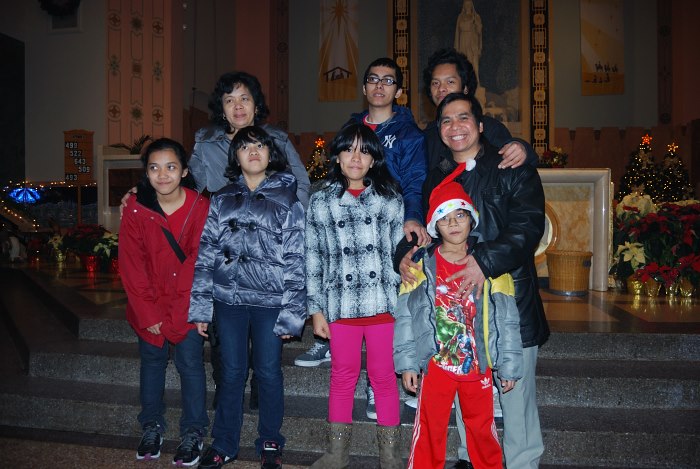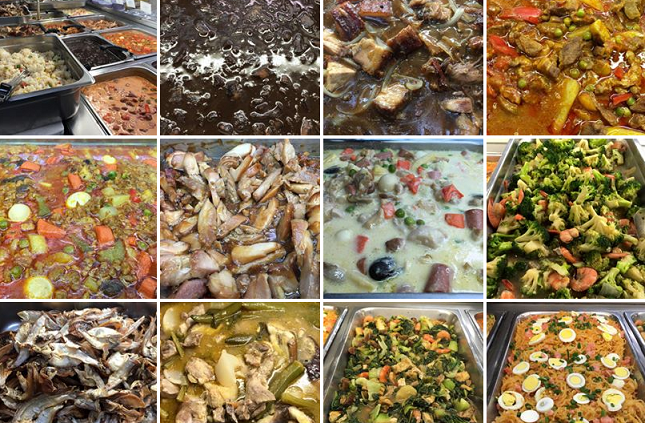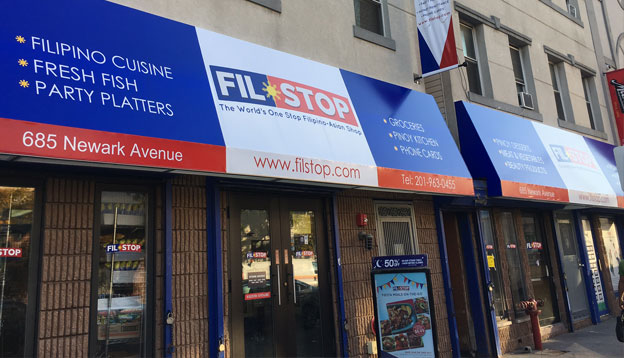‘Filipinos don’t cook as much anymore’ – Erwin Santos of FilStop
By Cristina DC Pastor
Who else would be so brazen to make this declaration but Erwin Santos, 44, president of FilStop, a leading Filipino grocery store in Jersey City. Initiated into the family business as a young boy, Erwin has seen the Filipinos’ shifting shopping habits over the years.
“Ten years ago people cooked so much at home,” he said when interviewed by The FilAm. “Today, people like their food to go is what I’ve noticed.”
Maybe Filipino Americans are not so much into hosting parties at home, or preparing food at the end of a hard day at work. They are more into ‘eating out’ or ordering food online or ‘to go.’ With this trend came a corresponding response: FilStop began offering a large assortment of cooked dishes for families who have a craving for traditional Philippine dishes — such as Adobo, Pancit noodles, Sinigang — but may be too drained at the end of the day to chop vegetables or wait for the meats to boil. The store also provides party platters for company events and family parties.
“I changed my philosophy. I like to see what customers want,” he said.
Born in Bayonne, New Jersey, Erwin remembered spending his summers helping his father Oliver at the warehouse. He was about 6 years old then, and already helping pack rice or monggo beans in smaller bags or unloading containers he could carry.
“I was being babysat, not being made to work in the family business,” he said. “My father made it fun.”
The business is FilStop, founded in 1973 by three Aguila sisters from San Jose, Batangas and their spouses. One of siblings was Erwin’s mother. The pioneering Filipino retail store in New Jersey became so successful it would later branch out into a bakery and an a la carte restaurant. It also became a distributor of Philippine food to smaller retailers. FilStop — originally named Phil-Am Food — has served Jersey City and nearby cities in Pennsylvania, New York, Washington D.C. area since the 1970s.
In 2002, when the company was divided into individual parcels of ownership by the various family branches, the Santoses assumed ownership over the retail operation. In 2015, they changed the name to reflect the company’s expansion into e-commerce. It is no longer just a busy storefront on Newark Avenue, it is also an online store with thousands of customers around the world.
“We’ve grown from a small family store to a world-wide provider of Filipino food,” he said. “The name change was important to ensure we were building a brand that was uniquely ours.”
Erwin, who left college to devote his time to FilStop, said he was “raised around the business.” He started at the bottom. He would hang out at the store and watch his parents at work. He would later become entrusted with supervising the warehouse and making important merchandising decisions until he was ready to be on his own.
“I wouldn’t say I thought I’d be doing this. It kind of just happened,” he said when he decided to stop going to college to help his parents more diligently with the store’s operations.
It has since expanded into what he calls “the world’s One-Stop Filipino-Asian shop,” FilStop’s “claim to fame” being its wide variety of products.
“We have more than 300 SKUs (stock keeping units) of snacks chips,” he declared.
Business is “still the same great service since 1973” despite the name change, he stressed. He believed his education came from learning life’s lessons while growing FilStop.
“My parents raised me to understand not to take anything for granted, that everything is earned, that no member of our family is spoiled,” he said.















I thought this article was really informative.
This is a topic which is near to my heart… Many thanks!
I m just really curious to know of why so many filipinos loves rice so much by eating it a day at least.
But in the case of Filipino food, there’s no stronger term to capture the essence of Asia’s most unique, idiosyncratic, and underrated culinary tradition.